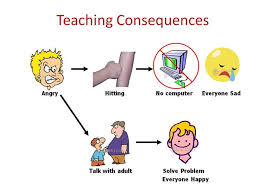Artificial Intelligence in Health Care: Transforming the Future of Medicine
Artificial Intelligence (AI) is revolutionizing the health care industry, offering unprecedented opportunities to enhance patient care, streamline operations, and improve outcomes. From diagnostics to personalized medicine, AI is proving to be a game-changer in various aspects of health care.
Enhancing Diagnostics
One of the most promising applications of AI in health care is its ability to improve diagnostic accuracy. Machine learning algorithms can analyze medical images, such as X-rays and MRIs, with remarkable precision. These AI systems can detect patterns and anomalies that may be overlooked by human eyes, leading to earlier and more accurate diagnoses. For instance, AI has been used to identify early signs of diseases like cancer and diabetic retinopathy, significantly improving patient outcomes.
Personalized Medicine
AI is also paving the way for personalized medicine by analyzing vast amounts of genetic data. By understanding an individual’s genetic makeup, AI can help tailor treatments that are more effective and have fewer side effects. This approach not only enhances patient care but also reduces costs associated with trial-and-error treatments.
Streamlining Operations
Beyond direct patient care, AI is optimizing operational efficiencies within health care facilities. From scheduling appointments to managing supply chains, AI-driven solutions are reducing administrative burdens on medical staff. Natural language processing (NLP) technologies are being used to automate documentation tasks, allowing physicians more time to focus on patient interaction rather than paperwork.
Predictive Analytics for Improved Outcomes
Predictive analytics powered by AI can forecast patient outcomes by examining historical data and identifying risk factors for diseases. Hospitals use these insights to implement preventative measures and allocate resources more effectively. For example, predicting which patients are at higher risk of readmission allows health care providers to offer targeted interventions that reduce hospital stays and improve recovery rates.
Challenges and Ethical Considerations
Despite its potential benefits, the integration of AI into health care raises several challenges and ethical considerations. Data privacy remains a significant concern as sensitive patient information is required for training AI models. Ensuring that these systems operate transparently and without bias is crucial for maintaining trust between patients and providers.
The regulatory landscape also needs adaptation to keep pace with rapidly advancing technologies while ensuring safety standards are met. Collaboration between technologists, medical professionals, regulators, and ethicists will be essential in navigating these challenges.
The Future of AI in Health Care
The future of artificial intelligence in health care holds immense promise as technology continues to evolve. Continued research and development will likely lead to even more sophisticated applications that further enhance the quality of care delivered worldwide.
As we embrace this technological revolution in medicine, it is vital that stakeholders work together responsibly so that all patients benefit from the advances offered by artificial intelligence while minimizing risks associated with its deployment.
Exploring Artificial Intelligence in Health Care: Uses, Benefits, Ethics, Diagnostic Accuracy, and Integration Challenges
- How is artificial intelligence being used in health care?
- What are the benefits of implementing artificial intelligence in health care?
- What are the ethical considerations surrounding the use of artificial intelligence in health care?
- How does artificial intelligence improve diagnostic accuracy in medical imaging?
- What challenges are associated with integrating artificial intelligence into health care systems?
How is artificial intelligence being used in health care?
Artificial intelligence is being used in health care to enhance various aspects of patient care and operational efficiency. AI technologies, such as machine learning and natural language processing, are improving diagnostic accuracy by analyzing medical images like X-rays and MRIs to detect diseases earlier and more accurately. In personalized medicine, AI analyzes genetic data to tailor treatments that are more effective for individual patients. Additionally, AI streamlines administrative tasks by automating appointment scheduling and documentation, allowing medical professionals to focus more on patient care. Predictive analytics powered by AI helps forecast patient outcomes, enabling health care providers to implement preventative measures and improve resource allocation. These applications demonstrate how AI is transforming the health care landscape by improving both clinical outcomes and operational processes.
What are the benefits of implementing artificial intelligence in health care?
Implementing artificial intelligence in health care offers numerous benefits that can significantly enhance patient care and operational efficiency. AI can improve diagnostic accuracy by analyzing medical images with greater precision, leading to earlier detection of diseases like cancer. It also facilitates personalized medicine by processing extensive genetic data to tailor treatments specific to individual needs, thus increasing treatment efficacy and reducing adverse effects. Additionally, AI streamlines administrative tasks such as appointment scheduling and documentation, allowing medical professionals to devote more time to patient interaction. Predictive analytics powered by AI can forecast patient outcomes and identify potential risks, enabling proactive interventions that improve recovery rates and reduce hospital readmissions. Overall, the integration of AI in health care promises to elevate the quality of care while optimizing resources and reducing costs.
What are the ethical considerations surrounding the use of artificial intelligence in health care?
The use of artificial intelligence in health care presents several ethical considerations that need careful attention. One primary concern is data privacy, as AI systems require access to vast amounts of sensitive patient information to function effectively. Ensuring that this data is securely stored and used responsibly is crucial to maintaining patient trust. Additionally, there is the risk of bias in AI algorithms, which can lead to unequal treatment outcomes if not properly addressed. Transparency in how AI systems make decisions is also essential, as patients and providers need to understand the rationale behind AI-driven recommendations or diagnoses. Furthermore, the deployment of AI technologies must be balanced with human oversight to ensure that ethical standards are upheld and that technology enhances rather than replaces the human element in patient care. As these technologies evolve, ongoing dialogue among technologists, ethicists, medical professionals, and policymakers will be vital in addressing these ethical challenges effectively.
How does artificial intelligence improve diagnostic accuracy in medical imaging?
Artificial intelligence significantly enhances diagnostic accuracy in medical imaging by leveraging advanced machine learning algorithms to analyze complex datasets with precision and speed. AI systems are trained on vast numbers of images, allowing them to recognize patterns and anomalies that may be subtle or overlooked by human radiologists. These algorithms can detect early signs of diseases such as cancer, cardiovascular conditions, and neurological disorders with high accuracy. By providing detailed analyses and highlighting areas of concern, AI assists radiologists in making more informed decisions, reducing the likelihood of misdiagnosis and enabling earlier intervention. This integration not only improves patient outcomes but also increases the efficiency of the diagnostic process within health care facilities.
What challenges are associated with integrating artificial intelligence into health care systems?
Integrating artificial intelligence into health care systems presents several challenges that need to be addressed to fully harness its potential. One major concern is data privacy and security, as AI systems require access to vast amounts of sensitive patient information, raising the risk of data breaches. Ensuring the accuracy and reliability of AI algorithms is also crucial, as biases in training data can lead to incorrect diagnoses or treatment recommendations. Additionally, there are significant regulatory hurdles to overcome, as existing health care regulations may not adequately cover AI technologies. The integration process also demands substantial investment in infrastructure and training for health care professionals to effectively use these advanced tools. Finally, fostering trust among patients and providers is essential, as there may be skepticism about relying on AI-driven decisions in critical medical situations. Addressing these challenges requires collaboration among technologists, medical professionals, policymakers, and ethicists to ensure that AI systems are safe, effective, and equitable for all patients.


